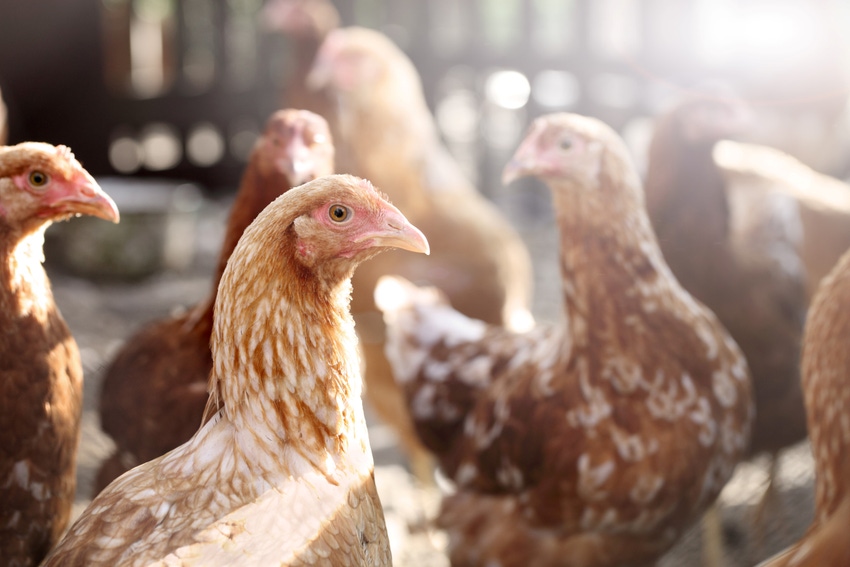U.K./China project to develop new diagnostic biomarkers that will allow early intervention and treatment of farmed poultry, reducing spread of disease and need for antibiotics.
August 5, 2019

A new research project to improve the health of farmed chickens in China and reduce the risk of disease and antibiotic resistance transferring to human populations was launched Aug. 2 by the University of Nottingham in the U.K.
The FARMWATCH project will use machine learning to find new ways to identify and pinpoint disease in poultry farms, reducing the need for antibiotic treatment and lowering the risk of antibiotic resistance transferring to consumers, the university said.
The £1.5 million project is a partnership between researchers from the University of Nottingham’s School of Veterinary Medicine & Science and the China National Center for Food Safety Risk Assessment. Funded by Innovate UK and the Chinese Ministry of Science & Technology (MoST), the researchers are also collaborating with commercial partners, Nimrod Veterinary Products in the U.K. and New Hope Liuhe in China.
According to the University of Nottingham, the rapid increase in poultry production to meet growing demand in China has resulted in extensive and indiscriminate use of antibiotics in that country. This has led to a worrying increase in cases of antibiotic resistance diagnosed in animals and, as a result, humans, via direct contact, environmental contamination and food consumption.
With antibiotic resistance now one of the most pressing issues worldwide, effective and rapid diagnostics of bacterial infection in chicken farming can reduce the need for antibiotics, which will reduce epidemics and antibiotic resistance, the university said.
The researchers in Nottingham will be working with colleagues in China to take thousands of samples from the animals, humans and environment of nine farms, in three Chinese provinces over three years. This complex ‘big’ data will be analyzed for new diagnostic biomarkers that will predict and detect bacterial infection, insurgence of antibiotic resistance and transfer to people. These data will then allow early intervention and treatment, reducing spread and the need for antibiotics, Nottingham said.
University of Nottingham assistant professor of bioinformatics Dr. Tania Dottorini, a member of the Future Food Beacon, said, "This is a hugely important project that has the potential to transform the ways farm animals are treated and looked after. It also has significant impact on the heath of consumers of poultry products, with future ramifications to other farmed animals. For the first time, we are using large-scale collection of data, statistical modelling and data mining powered by machine learning and cloud computing to find answers to some big problems faced by the farming industry. This project will contribute to sustainable development in China through improved health and well-being of vulnerable populations. We can then apply these learnings to the U.K. as well."
The FARMWATCH consortium comprises industrial and academic partners in the U.K. and in China, offering a unique combination of academic and industrial expertise in machine learning, statistical and mathematical modelling, bioinformatics, sequencing, cloud computing, microbiology, infection control and veterinary treatment, food safety, surveillance, epidemiology, the university explained.
Source: University of Nottingham, which is solely responsible for the information provided and is wholly owned by the source. Informa Business Media and all its subsidiaries are not responsible for any of the content contained in this information asset.
You May Also Like



